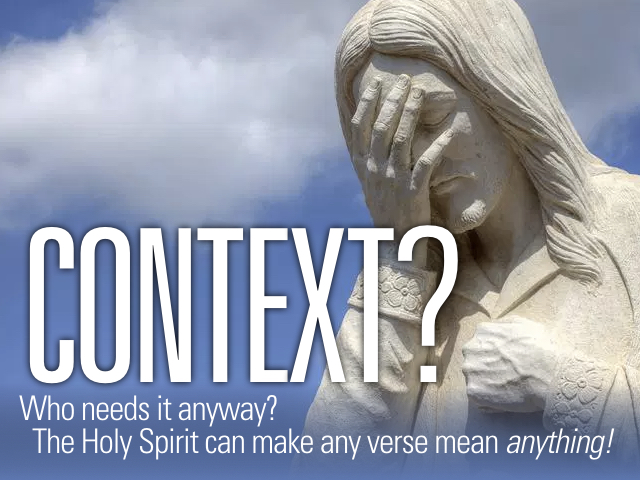
- FIVEFOLD MINISTRY 'faɪv.foʊld 'mɪn.ɪs.tri noun. A form of church leadership in which an individual congregation is led by five leaders, with duties corresponding to the five gifts Christ granted to build up his body. Ep 4.11
Christians have come up with a number of different ways to run Christ Jesus’s chruches. Initially the church was led by the Twelve, although that proved impractical as it grew, and as the Twelve spread out to other provinces and countries, or died off. The model we see in Paul’s pastoral letters suggests they ultimately borrowed the setup of Pharisee synagogues: An ἐπίσκοπος/epískopos, “supervisor” (which evolved into the English word “bishop”) who oversees the various spiritually mature Christians put in charge of all the other duties and ministries. Among the Orthodox and Catholic churches this evolved into archbishops and priests, but you’ll likewise see it in some Protestant churches which have pastors and presbyters.
But other Protestant churches have experimented with all sorts of leadership models. I was once a member of a church with a pastoral team: Five pastors who shared the job, took turns preaching the sermons, and handling various duties. I’ve been part of a church which claimed to have no leadership, and that they were entirely led by the Holy Spirit. (In practice, certain folks just happened to “hear the Spirit” way more than others, and wound up leading by default.) I’ve also been in congregationalist churches, which are basically run by direct democracy: The church members meet every month, and vote on every item of business. In meetings which can go on for hours.
Are those leadership models in the bible? Nah. Is that a problem? Not really. Because regardless of which leadership setup you choose, the important factor which makes it work is the people and leaders follow Jesus. If they do, the leadership setup actually doesn’t matter, because Jesus is gonna rule. And if they don’t, it doesn’t matter how “biblical” your setup is: The church is always gonna go wrong. Guaranteed.
At some other point I’ll list all the different models. But today I’m obviously gonna rant write about the fivefold ministry model.
It’s a relatively new leadership structure. Invented in the 1970s, and adopted by a lot of churches in the charismatic “apostolic movement.” These church are meant to be run by either five elders, or five teams of elders. (Since each of these teams tends to have a supervisor in charge of it… functionally it’s still five elders.) And each of these elders holds a different office, or has different job duties, which correspond to one of Christ Jesus’s five ministry gifts, listed by Paul in Ephesians.
- Ephesians 4.11-12 KJV
- 11And [Christ] gave some, apostles; and some, prophets; and some, evangelists; and some, pastors and teachers; 12for the perfecting of the saints, for the work of the ministry, for the edifying of the body of Christ: 13till we all come in the unity of the faith, and of the knowledge of the Son of God, unto a perfect man, unto the measure of the stature of the fulness of Christ:
In short, the five leaders of a fivefold church are designated as an apostle, a prophet, an evangelist, a pastor, and a teacher.
Now. Historically Christians haven’t taught these are five jobs, but five gifts. They’re different abilities to minister. Different aptitudes. I have a knack for teaching; another’s gonna have a knack for evangelism. Another for prophecy, another for pastoral care.
But, I should point out, while I have a knack for teaching, I sometimes do all the other things. Because I’ve been in Christian leadership long enough to know how to do all of ’em. I can evangelize. I can prophesy. I can pastor. I can even function as an apostle if the Holy Spirit gives me a certain task to accomplish.
’Cause in practice, the Holy Spirit grants all these gifts to various Christian leaders on an ad hoc basis. Not just one and only one gift to one person. Jesus is an obvious example of someone who simultaneously had all five gifts:
- APOSTLE: Jesus was sent by God. He 3.1
- PROPHET: Jesus shares God’s word. Mt 21.11
- EVANGELIST: Jesus shares the good news of his kingdom. Mk 1.14
- PASTOR: Jesus is our good shepherd, Jn 10.11 our leader.
- TEACHER: Jesus is a rabbi, Jn 13.13 and our only rabbi. Mt 23.10
“Well of course Jesus could do ’em all,” various Christians reply, ”because he’s Jesus!” Yep, that’s everybody’s favorite excuse for not doing as Jesus does: He’s exceptional. And to be fair, he is. But not in this are—’cause loads of his apostles also simultaneously had all five gifts. You see ’em in Peter, John, Philip, Paul, James; and you’ll notice most churches regularly expect their head pastor to have these abilities whenever necessary. Apostles in that God called ’em into ministry. Prophets in that they can recognize God’s voice and authoritatively talk about God’s will. Evangelists ’cause they lead people to Jesus. Pastors ’cause they shepherd the people of their churches. And teachers ’cause they gotta teach us everything Jesus taught.
Fivefold ministry advocates point out this is an awful lot of work to put upon just one person. They’re not wrong! It’s why the mature Christians of a church need to step up and help their pastor. But the fivefold folks claim the list in Ephesians is a jobs list: The Holy Spirit divvied up these jobs, just like he scattered his supernatural gifts among different Christians. 1Co 12.7 Therefore each church shouldn’t only have a pastor in charge, but have five leaders. A pastor of course. And also an apostle, prophet, evangelist, and teacher.










